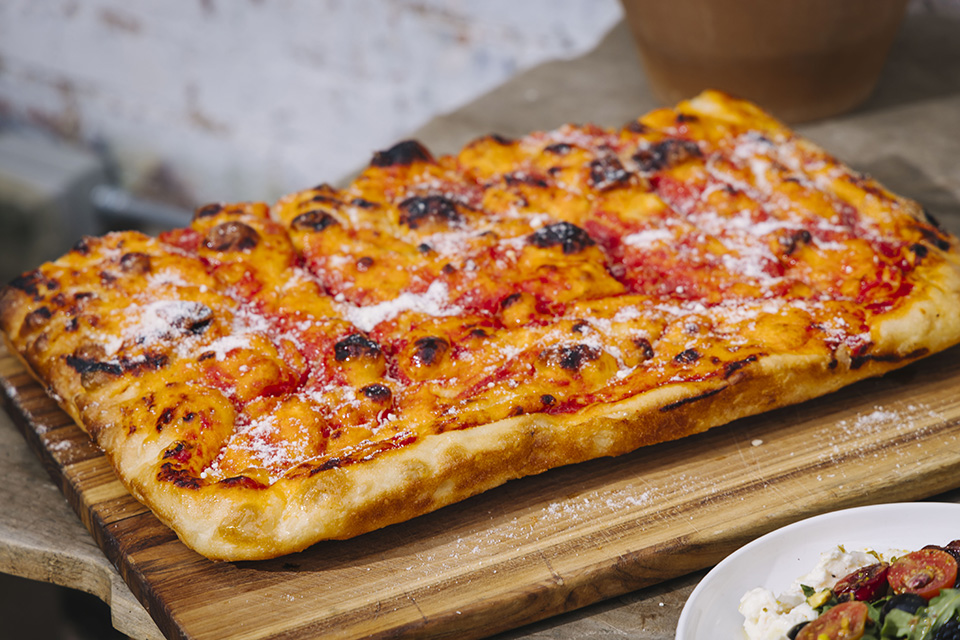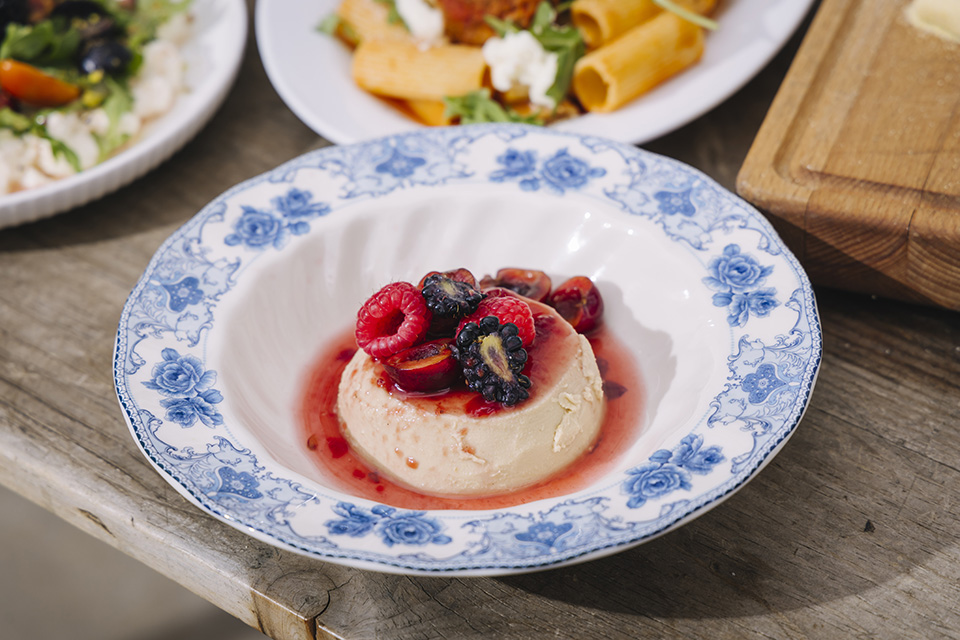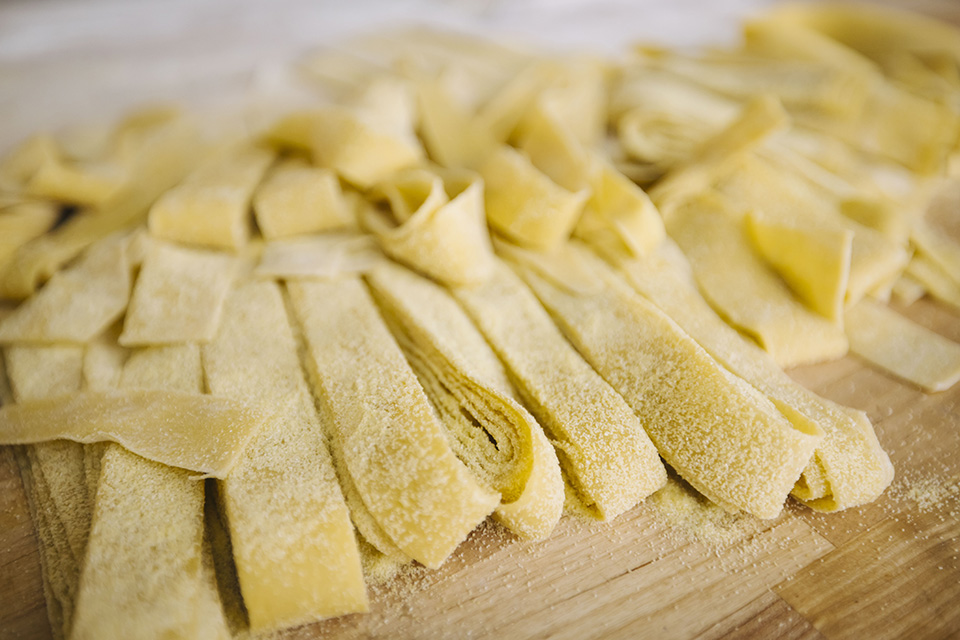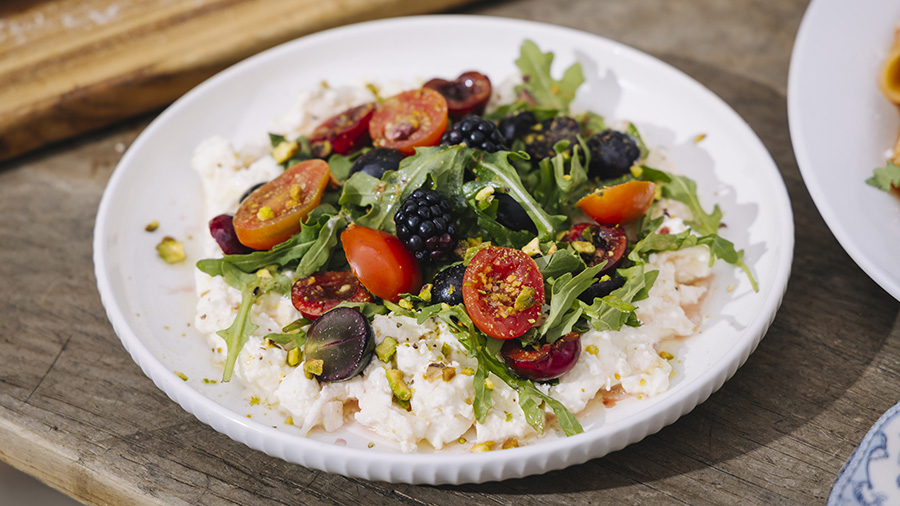
Brothers bring authentic Italian flavor to Fort Worth with Bocca Osteria Romana
By Natalie Lozano Trimble
Photography by Thanin Viriyaki
At 13 years old, Alessandro Salvatore’s father sent him to live in Italy with his grandparents. His time living in Rome and the dishes he fell in love with inspired his beloved menu at Bocca Osteria Romana, which he co-owns with his brother Alfonso.
The half-Italian brothers opened their restaurant October 2024 in Fort Worth’s Southside neighborhood. The menu changes with the seasons and everything is made from scratch daily, including the pasta. Limited hours—dinner only Tuesday through Saturday—reflect the challenge of this commitment to freshness with the limitation of a tiny kitchen.
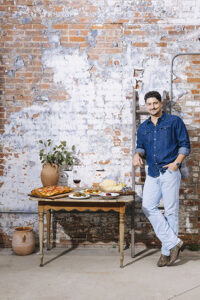
Alessandro Salvatore (pictured) and his brother Alfonso gleaned their inspiration for Bocca Osteria Romana from time spent in Rome.
“It’s a lot of work, but I think that makes a real difference,” Alessandro says. “You don’t have to go to New York, you don’t have to go to LA.”
He would put their dishes against anything you’ll find in bigger cities.
The Salvatores were born in McAllen, Texas, but spent formative years not only in Italy, but also Mexico City where their Italian father met their Puerto Rican mother. Both brothers are fluent in Italian, Spanish and English, but Alfonso says it’s more than the languages they’ve acquired; it’s also the distinct cultures.
Alfonso, who is five years younger than Alessandro, says they’ve been able to work together for more than a decade because they divide the work according to their strengths.
“Not stepping on each other’s toes is important,” Alfonso says. “Not to have an ego.”
Alfonso manages front-of-house staff and creates the company culture, while the kitchen is Alessandro’s domain. He learned the recipes and techniques from their grandmother and while working in Italian restaurants.
Time in Mexico has influenced his cooking in subtle ways. Where Italian recipes have heat from dried pepperoncini, Alessandro might opt for serrano peppers instead, he says.
The restaurant’s namesake is the Roman statue the Bocca della Verità or “mouth of truth.” In Italian lore, a hungry lion was kept behind the statue and accused criminals would place their hand inside the mouth, Alessandro says. Those who were guilty would lose a hand while the innocent were spared. A replica of the statue featured on a wall at Bocca adds to the Italian ambiance that drew the Salvatores to this location.
The osteria in their name refers to a specific type of Italian dining experience.
“It usually means a mom or a grandma working in the kitchen, usually run by family,” Alessandro says. “You know you’re going to get a good experience.”
Fort Worth’s Bocca is their second location. The Salvatores have two other restaurants in San Juan, Puerto Rico: the original Bocca, which opened in 2016, and a Mexican restaurant called Acapulco which they opened in 2014.
Rigatoni con le Polpette e Burrata
Serves 8
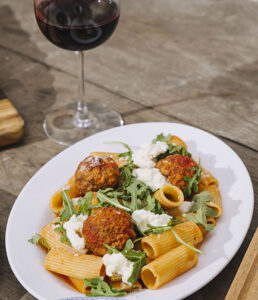
Rigatoni con le Polpette e Burrata
Ingredients:
- 2 pounds meatballs
- 2 pounds rigatoni
- 3 cups sauce, see below
- 12 ounces burrata, cut into chunks
For sauce:
- 1/2 cup extra virgin olive oil
- 1 yellow onion, diced
- 2 cloves of garlic, minced
- 1 28-ounce can of San Marzano tomatoes
- 1/4 teaspoon of salt
- 1 pinch of black pepper
- 12 fresh basil leaves
Preparation:
In a large pot, heat olive oil on low flame. Add onions until translucent. Add remaining sauce ingredients and cook on low. Add meatballs to sauce. Cover and simmer on low heat for 45 min.
In a large stockpot cook rigatoni in boiling salted water until al dente.
Mix sauce with rigatoni and meatballs. Top with burrata when served.
Dishes at Bocca Osteria Romana are influenced by Mexican and Italian cuisine.

